USAPP Managing Editor, Chris Gilson looks at the best in political blogging from around the Beltway.
Jump to
[one_half last=”no”]
The 2016 campaign and the primaries
The Democratic Campaign and the Candidates
The Republican Campaign and Donald Trump
President Obama and the Administration
[/one_half][one_half last=”yes”]
The Beltway and the Supreme Court
Foreign policy, defense and trade
Obamacare and health policy
The economy and society
[/one_half]
The 2016 Campaign and the primaries
On Saturday, FreakOutNation reckons that former Secretary of State Hillary Clinton is likely to “destroy” Donald Trump in the fall general election. Why? She’s spending far more money, has ten times the campaign staff, and has a massive lead on the New York billionaire in terms of data and voter analytics. Daily Kos says that Republicans are planning on running the same campaign against Clinton for the general election that they have been for the past two decades – investigation after investigation. Political Animal says that we need to get ready for a “long, very ugly” campaign which will be won on the ground.
Logistics aside, this week was all about Clinton/Trump general election polling, with some polls showing Trump equalling or even edging out Clinton. On Thursday, Red State reports that Trump has lost his lead against Clinton once again, and that after a poll was retaken, it may well be that he never really had it. Townhall, by contrast, writes Thursday that a new polling average shows Clinton at 43.2 percent to Trump’s 43.4 percent – the “wise men” who have predicted that Trump could never win a general election could yet be wrong. PoliticusUSA writes Wednesday that a new GOP poll of the Badger State shows that Clinton leads Trump there by 12 points. It turns out that Wisconsin voters just don’t like Donald Trump.
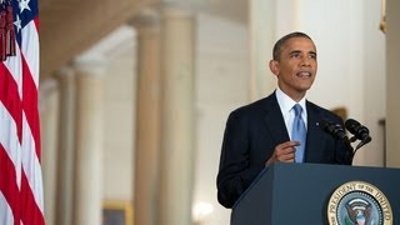
Political Animal says that one of the most important numbers in some polls actually isn’t anything to do with Trump or Clinton – it’s President Obama’s approval rating. Now standing at 51 percent (though it’s as high as 90 percent among African Americans), it can only be a help to Hillary Clinton’s campaign. Powerline argues that Barack Obama is the unspoken issue in this year’s campaign, with many more voters out there likely to support a candidate who criticizes Obama than defends him. Monkey Cage meanwhile writes that according to new polling, Americans actually prefer Democratic policies
Smart Politics looks at just how meaningful Clinton’s vote lead over Trump actually is. They say that while Clinton has had two million more votes than Trump over the primary season, history shows that this is little guarantee that she will come out on top in the general election in November.
Maybe current polls don’t matter after all – according to Hit & Run only seven counties across the US will determine who the next president is.
The Upshot looks at how what they say is a “B-Minus” economy may be causing a turbulent election. They say that while a strong economy helps to keep the party in power, in power, and a weak economy sees the incumbent party turfed out, the current moderately successful economy makes for something of an unconventional election. If the economy is important for this election (in an odd way), then campaign money isn’t, says Mischiefs of Faction. They say that 2016 has already broken all the records for the amount of money spent on campaigns, but this spending has been comparatively poor in terms of signalling about candidates and their campaigns.
When commentators weren’t talking about Trump and Clinton’s poll numbers, they were tantalized and tempted by the potential for a third party run this November. Red State has the news the two different polls have shown that 20 percent of Americans would vote for a third party over either Trump or Clinton, while Hit & Run says that still another poll shows that that number could be as high as 58 percent. On Wednesday, Townhall argues that a four-way race for the presidency is entirely possible – Vermont Senator Bernie Sanders may not give up and make a third-party bid, which might then encourage a fourth-party bid from an “authentic conservative” such as 2012 GOP presidential nominee Mitt Romney. Outside the Beltway says that people need to “stop trying to make Mitt Romney happen”. They write that it’s now simply too late for an independent candidate to actually launch a presidential bid that would be anything other than a waste of time.
On Friday, United Liberty says that potential Libertarian presidential candidate (and former governor of New Mexico), Gary Johnson is very nearly tied with Clinton among independent voters. FiveThirtyEight suggests that we pay attention to Gary Johnson, given that he’s pulling ten percent of the vote in polls compared to Trump and Clinton. The Atlantic comments Tuesday that Gary Johnson is having a “good day”. If he can reach 15 percent in the polls, then he will be able to share the stage in general election debates with Clinton and Trump. That said, he still needs to win his party’s nomination. Red State, meanwhile reports that Libertarian Party funding and registration has seen a huge spike – 20 times more people signed up as members in May than did in May last year. The American Thinker ponders whether or not the Libertarian ticket might help Clinton by giving GOP voters a way of spurning Trump without supporting the Democratic nominee. Hit & Run has three reasons why the Libertarian Party could do unusually well in the fall, but also has another three reasons why it should contain its excitement, one of them being that “normality is resilient”.
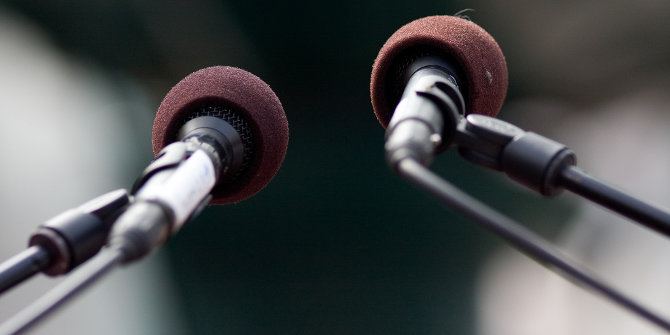
The other big campaign news this week was the potential debate between Bernie Sanders and Donald Trump. After the Clinton camp ruled out a debate between the former Secretary of State and the Vermont Senator (PoliticusUSA), The Atlantic reports that on Thursday Donald Trump stated that he’d be willing to debate Sanders ahead of the Golden State’s primary. Daily Kos writes that by the end of Thursday it looks like Trump was kidding about debating Sanders. On Friday, The Atlantic comments that the Sanders-Trump debate was never going to happen, despite the fact that the debate showdown would have been “tremendous”. FreakOutNation calls Donald Trump a coward for backing out of the debate after a technology investment company offered to put up the $10 million for charity that Trump had stated would be needed to hold a debate.
This week’s primaries
Outside the Beltway reports that Donald Trump “coasted” to victory in Washington State’s primary election on Tuesday, gaining 76 percent of the vote. The win put him only 28 delegates away from the 1,237 he needs to clinch the GOP presidential nomination.
Looking ahead to the California Democratic primary, Hit & Run says that while Bernie Sanders is closing in on Hillary Clinton in the Golden State according to the polls, the state’s electoral system may actually mean that support for Sanders is not translated into votes.
The Democratic Campaign and the Candidates
On Sunday, Political Animal says that the ongoing primary fight is helping the Democrats in California. It turns out that Golden State residents are registering to vote in “breathtaking” numbers, with many doing so in order to vote against Trump, but also to vote for Bernie Sanders. Townhall, on the other hand, reckons that the Democrats are in disarray in California, with the Los Angeles media covering what they say is the growing rift between Clinton and Sanders after allegations of violent conduct by Sanders supporters at the recent Nevada Democratic Party convention.
In these waning days of the Democratic primary, many have called on Bernie Sanders to end his presidential bid so that the party can unite behind Hillary Clinton. No more mister nice blog looks back to the 2008 primary fight, when Clinton herself similarly refused to drop out after it was fairly clear that Barack Obama would be the Democratic nominee. They comment that polls back then showed that the vast majority of Americans wanted change, meaning that the party could afford a bit of
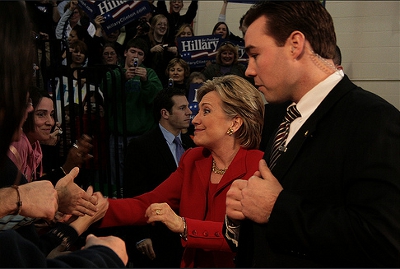
disunity. Now, on the other hand, the Democrats are trying to win their third straight election, meaning that they no longer have the luxury of a sustained fight. The Atlantic draws similar parallels with the 2008 Democratic primary fight, writing that comparing then with now is tricky, given that the ’08 primary started earlier and last longer. They write that Clinton is in a better position in terms of pledged delegates now than Obama was eight years ago. Sabato’s Crystal Ball this week looks at why Democratic unity could be easier this time around. They say that once the Sanders/Clinton primary fight finally ends, Sanders’ supporters will only have to like Clinton more than they like Trump to vote for her, which should be a relatively easy bar to clear.
This week also saw growing murmurs to the effect that the chair of the Democratic National Committee, Debbie Wasserman Schultz step down. Crooks & Liars says that Congressional Democrats have been discussing whether or not Schultz should go, given how divisive a figure she seems to have become.
Moving on to what the two candidates have been up to this past week:
Hillary Clinton
- Five reasons why Hillary Clinton isn’t fit to be president (Townhall)…
- … and seven reasons why you should vote for her over Donald Trump (The Federalist)
- Clinton’s putting her husband Bill in charge of the economy may well backfire on her (Red State)
- Women voters aren’t really that keen on Hillary Clinton (Hit & Run)
- How the Clinton campaign has been working to connect Trump to the housing crisis (Daily Kos)
- Clinton’s map advantage could start to shift towards Trump (The Federalist)
- Just why hasn’t Clinton been indicted for her use of a private email server during her time as Secretary of State? (The Federalist)
- Clinton broke the State Department’s rules on record keeping by using her private email server, says the Obama Administration (White House Dossier)
- Just what should be done about Clinton’s email scandal? (Outside the Beltway)
- How Clinton is pushing two of corporate America’s biggest ideas – immigration and infrastructure spending (Wonkblog)
- Clinton’s fundraisers are desperate; Trump’s nomination hasn’t led to a massive rush of donations as they had expected (Red State)
Bernie Sanders
- The Vermont Senator has been defending what many see as his impractical path to victory (Crooks & Liars)
- By spurring petty political fights, will Sanders hurt his own cause? (The Atlantic)
- Sanders refuses to concede the Democratic nomination to Hillary Clinton as Donald Trump looms (Townhall)
- Sanders hasn’t dropped out, meaning that he has a bigger say in the Democratic presidential platform (Hit & Run)
- Why for those who back Sanders, focusing on downballot primaries is the right idea (Political Animal)
- A five point plan to better help him to build a progressive legacy (The American Prospect)
- How Sanders’ insurgent revolution is ending (The Atlantic)
-
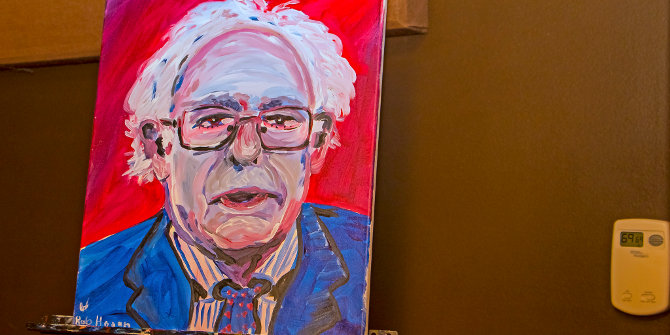
Credit: Bob Simpson (Flickr, CC-BY-NC-SA-2.0) Why Sanders’ supporters should vote for Donald Trump (The Federalist)
- Sanders has been spending like crazy. Is his campaign broke? (Red State)
- Why it makes sense for Sanders to request a recanvassing of the results of the Kentucky Primary (PoliticusUSA)
- Sanders isn’t doing all that well with true independents (FiveThirtyEight)
- Is Sanders actually going “scorched earth” with Clinton, or is she just a terrible candidate? (Hit & Run)
- When will Sanders begin to help the Democratic Party heal? (The Atlantic)
- Senate Democrats are fed up with Sanders over his Trump debate “stunt” (PoliticusUSA)
The Republican Campaign and Donald Trump
On Tuesday, Kevin Drum writes that Republicans really do have only themselves to blame for the rise of Donald Trump. They say that it’s down to the influence of Fox News and talk radio on conservatives, as well as tolerance or racism by many leading Republicans. Many commentators see Donald Trump’s rise as the beginning of the end for the GOP or even the conservative movement. Red State says that a Trump presidency would only end conservatism if conservatives let it do so. American Thinker writes Thursday on the history of the decline and fall of the Republican Party, commenting that the GOP wasn’t killed by Donald Trump; it killed itself using Trump.
Last summer, the general consensus was that the depth of the Republican Party’s presidential candidate field would mean that who was ultimately nominated would be a strong candidate. Not so, says Mischiefs of Faction. They comment that the wide field ended up making it harder for party leaders to settle on a favorite who wasn’t Donald Trump. Turning now to the Donald himself:
Donald Trump
- How Trump has become a social conservative as part of his presidential bid (Powerline)
- How a Trump presidency would cripple the conservative movement (Red State)
- How remaining in the #NeverTrump camp is the only way to safeguard conservative principles (Townhall)
- What Trump must change in order to beat Hillary Clinton (American Thinker)
- Trump is still treating $36 million which he have to his campaign as a loan – not a donation (Red State)
- After being one of his biggest critics, South Carolina Lindsey Graham has jumped aboard the Trump Train (Red State)
- The Trump campaign didn’t raise even close to the $6 million for veterans it said it had (Red State)
- How Trump dropped former neurosurgeon (and GOP presidential contender), Ben Carson, as a potential running mate (Red State)
- How to prepare for president Trump (America blog)
- Trump apparently only cares about climate change when it’s his own property which is at risk (PoliticusUSA)
- Why do many on the left think that Trump might win? (Red State)
- If Trump did win, would he doom the world? (Hit & Run)
- Trump would be inheriting an office with incredible power if he did win (The Atlantic)
- Even if he didn’t win this fall, Trump could still harm the country irreparably by refusing to concede gracefully (The Hill’s Congress blog)
- Is Donald Trump a racist? (Townhall)
-
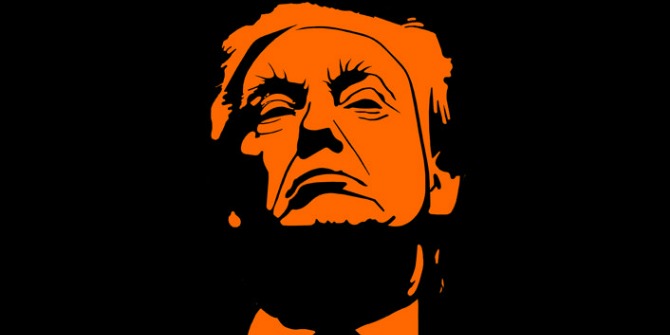
Credit: DonkeyHotey (Flickr, CC-BY-SA-2.0) Voters don’t seem to mind whether Trump releases his tax returns or not – so far (No more mister nice blog)
- How Trump has been preying on the pocketbooks of the evangelical community (FreakoutNation)
- Trump needs to realize that he’s not running against Bill Clinton (PoliticusUSA)
- Can Trump take advantage of Hillary and Bill Clinton’s Whitewater real estate scandal from the late 1970s against Hillary? (The Atlantic)
- How Trump’s strategy against the Clinton isn’t all that terrible (Red State)
- On the other hand, is Trump’s secret weapon Hillary Clinton? (The Federalist)
- Trump has won (the nomination). But others have won too (Mischiefs of Faction)
- Three words which could change Trump’s life – “I was wrong” (Townhall)
- The media is turning against Trump by listing his various conspiracy theories (PoliticusUSA)
- How Trump is ignoring the #1 concern of voters – the weakening economy (Townhall)
- Trump is pivoting to the General Election by attacking women (Political Animal)
- This week saw a Trump staffer mis-send an internal campaign memo to Politico (Crooks & Liars)
- New Mexico Governor, Susana Martinez is apparently too busy to campaign with Trump (Red State)…
- …which led to Trump blasting back at her (Powerline)
- Trump will apparently soon soften on some issues – just not on the wall with Mexico (Daily Kos)
- Trump this week fired his national political director, Rick Wiley over a “loyalty” clash (Red State)
- Guess who is now the official all-time GOP primary vote leader? (Smart Politics)
- Now that he’s being investigated by the FBI, will Tennessee Senator Bob Corker be Donald Trump’s Vice President? (Red State)
- House Speaker Paul Ryan is preparing to embrace Donald Trump (Daily Kos)
- Why some Republicans will just not vote for Donald Trump (Red State)
- How racial prejudice is the biggest predictor of support for Trump over Clinton (Monkey Cage)
- Trump’s Vice President will apparently do all the parts of the job of president that Trump doesn’t want to do (Red State)
- If Trump does choose a white man to be his Veep, it will be a decision which would ensure a Democratic victory in the fall (PoliticusUSA)
- On Thursday, Donald Trump clinched the GOP nomination (Daily Kos)
- Six upsides to Donald Trump’s candidacy (The Federalist)
President Obama and the Administration
The Atlantic reports that eleven states – including Texas – have challenged the Obama Administration’s interpretation of Title IX which prohibits discrimination on the basis of sex and gender identity. The complaint, filed by Texas Attorney General, Ken Paxton, has asked the state’s federal district court to block the administration’s May letter which is aimed at protecting transgender rights in public schools.
On Monday, White House Dossier looks at why President Obama put an end to the country’s embargo on arms exports to Vietnam. They say that while Obama would claim otherwise, it’s a way to counter the rise of China.
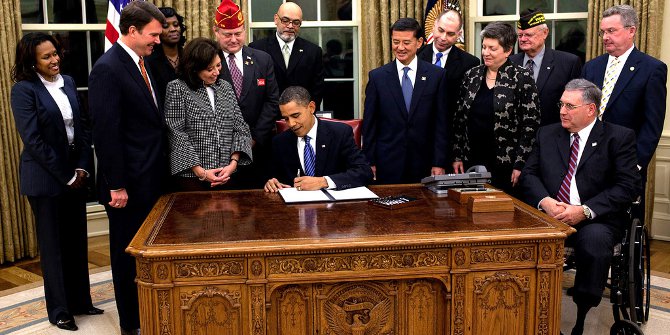
The Daily Signal reckons that more than 20,600 new regulations have been added in the Obama presidency, leading to a total of $100 billion in extra costs for the country.
Red State comments that Barack Obama’s image has been rehabilitated, with his approval rating now sitting at over 51 percent. They say that much of this is down to the general public feeling that the sitting president would be a better choice than either Hillary Clinton or Donald Trump.
On Friday, Political Animal takes stock of Obama’s succession plan, commenting that in the last few years the President has made a lot of moves to create a legacy, from executive action on immigration, to new rules on climate change, and the Iran nuclear deal.
The Beltway and the Supreme Court
Wonkblog reports that the Chair of the Federal Reserve, Janet Yellen, has stated that the bank will probably raise interest rates in the next few months, citing that the economic recovery is picking up steam after an uncertain first quarter this year.
Political Animal give another answer to the perennial question, “why does everyone hate Congress?” This time, it’s the attachment of a pro-LGBT rights amendment to an energy spending bill after its attachment to a military construction bill failed last week. The amendment passed, but the then died on the House floor after many House Republicans opposed the underlying energy bill, voting 112-305 to defeat it. One thing that Congress did get done this week was to take action against the Confederate flag, restricting its display at Department of Veterans Affairs commentaries, though the measure was opposed by 158 House Republicans says Federal Insider. Still on the House of Representatives, Crooks & Liars comments that the body’s investigation of the head of the Internal Revenue Service (IRS), John Koskinen, is pure political theatre, given that House Republicans have held more than two dozen hearings, and spent more than $20 million to turn up nothing on the IRS’ alleged targeting of conservative groups. The Daily Signal writes that Congress’ bill on Puerto Rico is most definitely not a “conservative win”, given that it would impose a blanket stay on litigation filed by disgruntled creditors, and would also impose a control board to oversee the island’s budget.
Moving on to the Senate, PoliticusUSA says that the Senate – controlled by the GOP – will only work for six days in July and August. They comment that not only is the Senate’s obstruction of President Obama historic, but that its laziness is also unparalleled in modern US history.
Turning to the Supreme Court, The Atlantic says that its justices are often “passive-aggressive”, and gives the example of a recent case on race-based jury selection, where the Court granted relief under a previous precedent, which two of the Justices did not agree with.
Foreign policy, defense and trade
On Saturday, American Thinker looks at the US, NATO and Russia. They comment that Russian President, Vladimir Putin, has “played a daring poker game” with a relatively weak hand, but also that normalization of relations between the country and NATO.
This week, The Federalist looks back to the Iran nuclear deal of last year, commenting that it wasn’t about nuclear weapons at all. Rather, they write, it was a combination of the administration’s desire to achieve one foreign policy legacy item, and as a way to get the US out of the Middle East in favor of Russia and Iran.
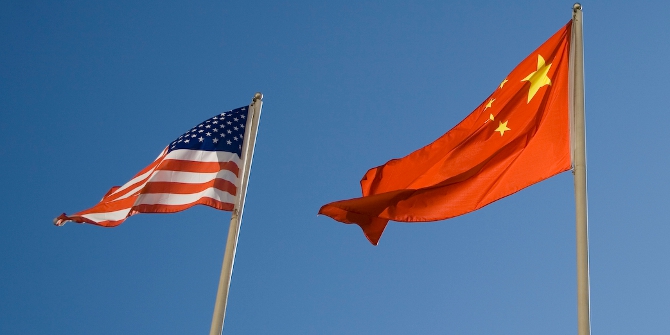
Speaking of US areas of interest, The Daily Signal argues that China’s apparent plans to deploy nuclear-powered ballistic missile submarines should definitely be of concern. They comment that the country’s development of such submarines is part of a more worrying trend – the creation of a truly modern military aimed at defeating US armed forces, should a conflict occur.
The Hill’s Congress blog meanwhile writes that US-Latin American relations are at an all-time low, and focuses on Hillary Clinton’s support for the 2009 Honduran coup whilst she was Secretary of State.
Moving on to trade issues, Red State says that if Donald Trump becomes president and gets the trade war with China that he seems to want, then it will be something which will matter to every American, given that it will help to unravel the free market system which has helped to make the country strong. Also talking trade, Townhall makes the case for dumping anti-dumping tariffs. Why should we get rid of them? They make life more expensive for everyone and jeopardize more jobs than they save, they argue.
Obamacare and health policy
Red State looks at why Medicare fraud has in their words, “exploded” under Obama. They say that the government lost $125 billion waste and fraud in the 2014 financial year, with one reason being that the Obama administration has been “strangling” the Recovery Audit Contractor program, which pays private auditors a portion of any fraudulently paid funds that they help the government to recover.
Townhall looks at how health reformers in Congress should replace Obamacare’s “costly provisions”. They say that for starters, Congress should repeal the program’s individual and employer mandates and taxes as well as creating a national market to allow insurers to sell policies across state lines.
An objective for many on the left is a universal health care – Bernie Sanders is especially a fan. Kevin Drum warns that such a program is probably no more popular now than it’s ever been, despite the wishes of Sanders and his supporters.
The economy and society
Wonkblog writes on the big advantage that what they term are “superstar cities” over everywhere else. They say that many of these sorts of cities have high-growth startups, something which more rural areas and small towns don’t tend to possess, as they have tended to specialize in more blue-collar industries.
Can the president actually save the economy? It’s largely a myth, says The Atlantic. They comment that modern presidents are more like a “tinkerer” with the economy than its chief engineer, with their policies contributing to long term growth rather than more immediate economic changes. Still on the economy, Wonkblog looks at where the minimum wage might fall for some Americans, namely Puerto Rico, as part of a House bill which would help rescue the island from its debt, and also reduce its minimum wage by $3.

For decades a succession of presidential administrations has struggled to reform the country’s immigration policies. The Atlantic says that Lyndon Johnson’s 1965 landmark reform underscores the way in which immigration policy can be a potent political tool, which can offer a model for future presidents.
On Friday, Monkey Cage writes that despite the recent narrative to the contrary, mortality rates for middle-aged white men have been decreasing, not increasing.
Featured image: Former Governor Gary Johnson Credit: Gage Skidmore, (Flickr, CC-BY-SA-2.0)
Please read our comments policy before commenting.
Note: This article gives the views of the author, and not the position of USAPP– American Politics and Policy, nor of the London School of Economics.
Shortened URL for this post: http://bit.ly/1U8UpVa






